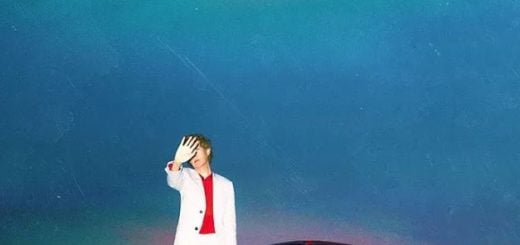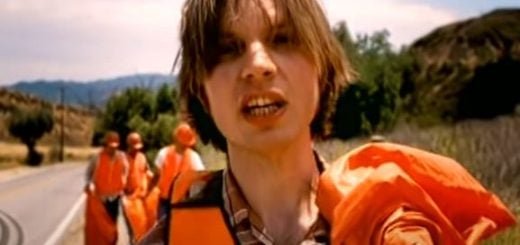Replica by Beck Lyrics Meaning – Unraveling the Layers of Constructed Reality
Lyrics
Cut the paper with exact-o knife
Tape it up, tape it up
Against the howling wind
I’m so tired don’t know where to begin
It’s so unreal
It’s all I need
This replica
I was the last to see me down on my knees
These antibodies learn to be the disease
And I learn to be what fights against me
We’ll make a replica, a place we can sleep
And we could live in a hollow tree
Grow up old and bury the sea
And when this replica begins to look cheap
I’d throw it out but now it’s home to me
It’s so unreal
It’s all I need
This replica
Build it up
Build it up
This replica
Now we build it up
Build it up
Build it up
Build it up
Build it up
Beck Hansen, known mononymously as Beck, has long been a chameleon of the music industry, navigating genres with an ease as enviable as it is rare. With his 2010 track ‘Replica’ from the album ‘Modern Guilt’, Beck delves into the depths of existential musings and the human penchant for imitation. The song’s lyrics paint a picture that is both abstract and deeply human, exploring the themes of identity, authenticity, and the replication of self in a dissonant world.
This exploration opens up a dialogue on what it truly means to craft an identity in a society perennially chasing the winds of conformity. ‘Replica’ is not just a song but a psychological journey that beckons the listener to peel back the layers of their own existence. As we dissect the meaning behind the haunting lyrics of this eclectic piece, we enter a realm where music becomes more than sound—it becomes a mirror reflecting our complex selves.
Crafting Clones of Comfort: The Replica Inside Us All
The song opens with a tangible sense of weariness: ‘I’m so tired, don’t know where to begin’. In this fatigue lies a profound disillusionment with the self—a self that has been spread too thin, X-Acto knife in hand, cleaving through the paper of our lives to create something palatable to the howling winds of society’s expectations.
Taping up fragments against the relentless weather, Beck invokes the image of a being desperately holding together the shreds of a life pieced together from photocopies of the institutionalized ideals. This is the replication of a structured, socially acceptable self, but beneath that surface, exists an individual stifling a yawn, aching for something more authentic.
To Be and Not to Be: The Existential Paradox
‘It’s so unreal, it’s all I need, this replica.’ With these words, Beck distills the modern paradox—the desire for an authentic life that is also, somehow, an escape from the very essence of authenticity. There’s a bleak comfort in the replica, a sanctuary from the turbulent sea of trying to be real in a world that often rewards the counterfeit.
This mantra-like chorus echoes the resignation of those who embrace the facsimile, not out of ignorance, but out of a deep-seated survival instinct. It reveals a consciousness that craves the replica’s sedative effect, numbing the senses to the bright sting of raw, unfiltered existence.
The Cycle of Self-Deception and Antibodies of the Soul
Beck punches through the layers of self-deception when he sings: ‘I was the last to see me down on my knees. These antibodies learn to be the disease.’ There’s a striking biological metaphor at work here. The very elements meant to defend and define us can turn inwards, attacking the host, becoming an ailment that we unwittingly nurture.
The lyrics weave an understanding of how we often become complicit in our own diminishing, learning to replicate the parts of ourselves that subjugate rather than liberate us. Beck puts forth the idea that in the quest to fortify our identity, we sometimes construct our own cages of conformity—replicas of restriction that bind the spirit. This is the self-defeating cycle of human adaptation gone awry.
From Hollow Trees to Buried Seas: Beck’s Natural Imagery
In the midst of the song’s eerie emotional landscape, Beck draws in natural imagery—hollow trees and buried seas—to symbolize the retreat and enclosure we find in our replicas. The hollow tree speaks to an inner void filled with makeshift dreams, cultivated in the shadows to escape the scrutinizing sun of the external world.
Meanwhile, the buried sea evokes thoughts of submerged truths and desires, a vast expanse of life smothered beneath the sands of societal expectation. Beck’s use of the natural world underscores the organic nature of our need for an individually constructed refuge, even if that sanctuary is little more than a barren echo of what we once hoped to be.
Unmasking The Home Within: Embracing the Replica We’ve Built
The culmination of introspection hits with the line: ‘And when this replica begins to look cheap, I’d throw it out but now it’s home to me.’ Here lies the revelation of the reluctant acceptance of one’s inner construct, however flimsy it may appear upon close inspection.
Beck captures the poignant resignation that comes with recognizing the fragility of the persona we’ve created. As we build these replicas of ourselves throughout life’s journey, they shift from being mere façades to becoming so entrenched that they are indistinguishable from what we might have once termed ‘home’. In these lyrics, Beck opens up a space for empathy with the human condition, a recognition of the makeshift shelters we create within our psyche to brave the wilds of existence.








